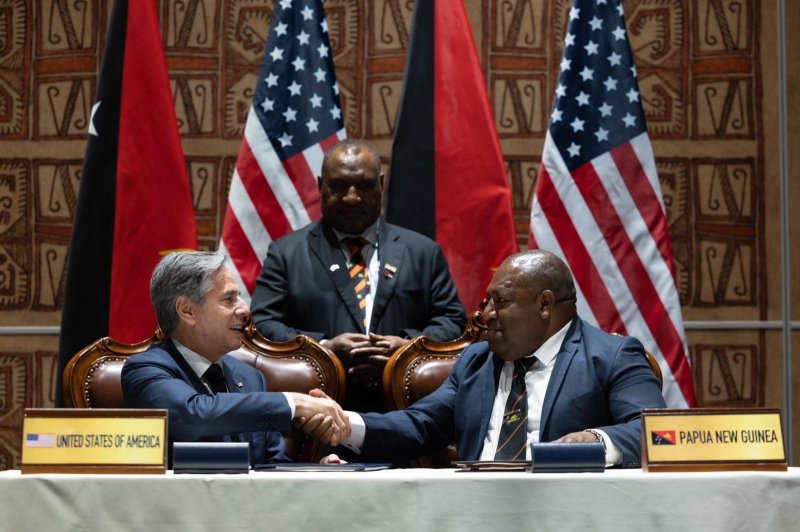May 22 (UPI) -- The United States and Papua New Guinea signed a new defense agreement Monday as the Pentagon works to increase its influence in the Asia Pacific against China.
U.S. Secretary of State Antony Blinken met with the island nation's Deputy Prime Minister John Rosso at Papua New Guinea's capital of Port Moresby to sign the pact. President Joe Biden had been expected to attend but cut short his Asia trip to return to Washington for debt ceiling negotiations.















